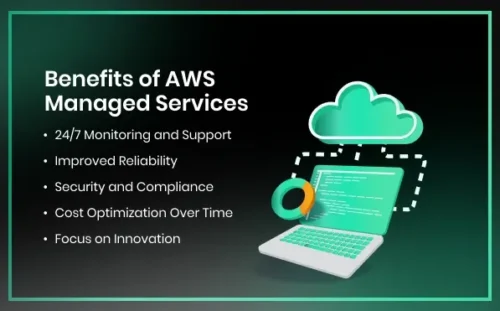AWS Support Consulting vs AWS Managed Services: Which One Is Right for You?
- Nitin Yadav
- Knowledge
About

Confused between AWS support consulting and AWS managed services? Learn key differences, benefits, and how the right AWS partner improves cost, uptime & compliance.
Industries
- AWS billing optimization, AWS cloud management, AWS compliance services, AWS consulting vs managed services, AWS managed services, AWS managed services provider, AWS migration consulting, AWS monitoring and support, AWS partners, AWS support consultant, AWS support consulting, AWS support services
Share Via
Amazon Web Services (AWS) has become the foundation of digital transformation. From startups launching their first SaaS product to Fortune 500 enterprises running mission-critical workloads, AWS powers innovation at scale.
But with growth comes complexity. Managing AWS infrastructure requires constant attention to performance, cost, security, and compliance. Enterprises often face a key question:
Should we rely on AWS support consulting for expert guidance, or partner with an AWS managed services provider for ongoing operational support?
This guide explores the differences, benefits, challenges, and future trends of both models, helping you choose the right approach for your business in 2025.
What is AWS Support Consulting?
AWS support consulting involves working with experienced AWS support consultants who provide strategic guidance and technical expertise. The engagement is typically project-based or short-term, designed to solve specific challenges.
Scope of AWS Support Consulting:
- Cloud migration planning.
- Architecture design and best practices.
- Security and compliance reviews.
- AWS billing support and cost optimization.
- Training and upskilling internal teams.
When to Use AWS Support Consulting:
- You’re planning a major migration to AWS.
- You need a cloud cost optimization audit.
- You want expert input on architecture or security.
- You prefer to keep day-to-day operations in-house.
In short, consulting provides the blueprint for success but leaves execution largely to your internal team.
What are AWS Managed Services?
AWS Managed Services (AMS) are offered by certified AWS managed services partners. Unlike consulting, this is an ongoing engagement where the provider takes ownership of your AWS infrastructure’s daily operations.
Scope of AWS Managed Services:
- 24/7 monitoring and incident response.
- Infrastructure provisioning and scaling.
- Patch management and backups.
- Security operations and compliance monitoring.
- Disaster recovery planning and execution.
When to Use AWS Managed Services:
- You need continuous AWS support services.
- Your workloads are mission-critical and require uptime SLAs.
- You lack the in-house talent to manage cloud infrastructure.
- You want to focus internal resources on innovation, not operations.
Here, the provider acts as an extension of your IT team, ensuring your cloud runs smoothly around the clock.
Key Differences Between AWS Support Consulting and AWS Managed Services
To make the decision easier, let’s compare the two approaches side by side:
Factor | AWS Support Consulting | AWS Managed Services |
Engagement Model | Short-term, project-based | Long-term, continuous |
Focus | Strategic advice, planning, optimization | Day-to-day operations, monitoring, scaling |
Duration | Weeks or months | Ongoing (12+ months) |
Cost Structure | Pay-per-project or hourly | Monthly/annual retainer |
Ownership | Business retains control | Partner manages infrastructure |
Ideal For | Migrations, audits, training | Enterprises needing 24/7 AWS management |
Think of it this way: Consulting = advisory blueprint. Managed Services = execution and operations.
Benefits of AWS Support Consulting
Working with an AWS support consultant offers several advantages:
- Expert Guidance on Demand
Gain access to specialized knowledge without hiring full-time staff. - Cost-Effective Flexibility
Pay only for what you need, making it ideal for startups or specific projects. - Faster Problem-Solving
Quickly address challenges like cloud migration or billing issues. - Internal Upskilling
Consultants often train your team, building long-term cloud competence. - Strategic Focus
Perfect for high-value, short-term needs such as audits, reviews, or planning.
Benefits of AWS Managed Services
Engaging an AWS managed services partner delivers different but equally critical benefits:

- 24/7 Monitoring and Support
Your infrastructure is monitored continuously, ensuring maximum uptime. - Improved Reliability
Incident response, backups, and disaster recovery protect against downtime. - Security and Compliance
Providers integrate DevSecOps practices and manage compliance frameworks like GDPR, HIPAA, and ISO. - Cost Optimization Over Time
Managed services include proactive AWS billing optimization, ensuring long-term savings. - Focus on Innovation
Free your in-house team from operational tasks so they can focus on building products and features.
Which One Should You Choose?
The right choice depends on your business stage, resources, and goals.
Choose AWS Support Consulting if:
- You need short-term expertise for a migration, audit, or architecture review.
- You want to retain control over daily AWS operations.
- You’re a startup or SME with limited budgets but skilled internal teams.
Choose AWS Managed Services if:
- You require 24/7 operational support.
- Your workloads are complex and mission-critical.
- You want to outsource AWS management to experts.
- You’re an enterprise scaling across multiple regions or industries.
Many companies actually use both: starting with consulting for strategy, then transitioning to managed services for long-term operations.
Case Study: Combining Consulting and Managed Services
Company: A fast-scaling SaaS provider.
Challenge: Struggled with migration planning, frequent outages, and rising AWS costs.
Step 1 – Consulting:
- Worked with AWS support consultants for migration strategy.
- Conducted billing optimization audit (saved 20%).
Step 2 – Managed Services:
- Partnered with an AWS managed service provider for 24/7 monitoring.
- Implemented a compliance-first DevSecOps framework.
Results:
- Migration completed successfully with zero downtime.
- AWS costs reduced by 35%.
- Uptime SLA improved to 99.99%.
Future Trends: Blending Consulting and Managed Services
In 2025 and beyond, enterprises will increasingly adopt hybrid AWS support models:
- Advisory + Operations – Partners offering consulting and managed services together.
- AI-Powered Support – Predictive anomaly detection and automated incident resolution.
- FinOps Integration – Cost management embedded in both consulting and managed services.
- Compliance-First Partnerships – Providers specializing in highly regulated industries.
- Outcome-Based Pricing – Paying based on savings or uptime improvements.
Conclusion
Both AWS support consulting and AWS managed services provide immense value the right model depends on whether you need short-term guidance or long-term operational support.
- Consulting = Expertise on demand.
- Managed Services = Peace of mind through ongoing support.
At SquareOps, we offer both. Whether you need a one-time AWS support consultant to design your architecture or a managed services partner to handle your AWS operations end-to-end, we help you:
- Reduce AWS costs by 30–40%.
- Improve reliability with 24/7 monitoring.
- Ensure compliance with global standards.
Not sure which model is right for you?
Book a Free AWS Consultation with SquareOps today.
Frequently asked questions
AWS support consulting provides expert advice on AWS architecture, migration, cost optimization, and security. It’s usually short-term or project-based, delivered by an AWS support consultant.
AWS managed services are long-term engagements where an AWS managed service provider handles daily cloud operations, including monitoring, scaling, security, compliance, and disaster recovery.
AWS support consulting offers strategic guidance and short-term expertise, while AWS managed services provide ongoing 24/7 operational support for AWS infrastructure.
Businesses should choose AWS support consulting when they need migration planning, architecture reviews, AWS billing support, or cost optimization without outsourcing day-to-day operations.
AWS managed services are ideal for enterprises needing continuous monitoring, uptime SLAs, security compliance, and outsourced AWS operations to free up internal teams.
Yes. Many companies start with AWS support consulting for migration or optimization, then transition to managed services for long-term infrastructure management.
Benefits include access to expert AWS consultants, faster problem-solving, flexible pricing, internal team training, and cost-effective solutions for specific projects.
Benefits include 24/7 monitoring, improved reliability, automated scaling, proactive cost optimization, and compliance management across AWS environments.
AWS Partners provide certified expertise, access to AWS credits, cost optimization strategies, and ongoing AWS cloud management tailored to enterprise needs.
SquareOps offers both project-based AWS support consulting and long-term managed services. We help enterprises reduce costs by 30–40%, improve uptime, and maintain compliance.
Related Posts

Comprehensive Guide to HTTP Errors in DevOps: Causes, Scenarios, and Troubleshooting Steps
- Blog

Trivy: The Ultimate Open-Source Tool for Container Vulnerability Scanning and SBOM Generation
- Blog

Prometheus and Grafana Explained: Monitoring and Visualizing Kubernetes Metrics Like a Pro
- Blog

CI/CD Pipeline Failures Explained: Key Debugging Techniques to Resolve Build and Deployment Issues
- Blog

DevSecOps in Action: A Complete Guide to Secure CI/CD Workflows
- Blog

AWS WAF Explained: Protect Your APIs with Smart Rate Limiting
- Blog

